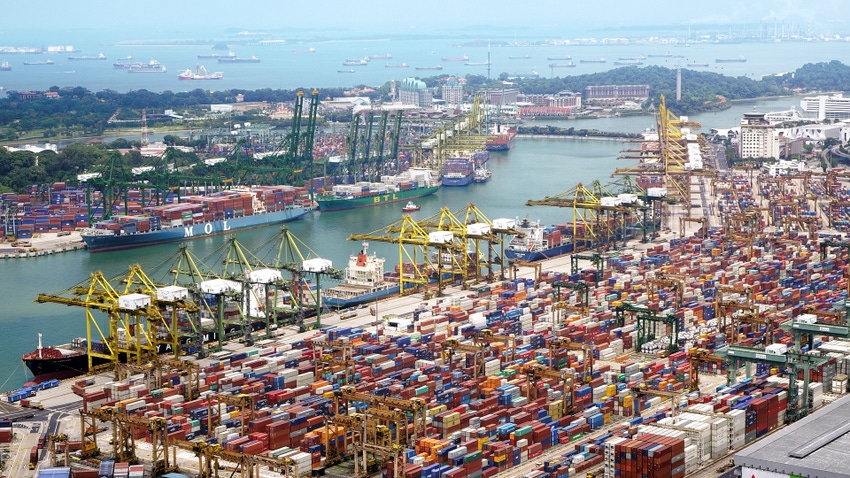Japan raises frozen beef import tariff after safeguard triggered
Import duty increases from 38.5% to 50% for remainder of fiscal year.

Japan's government announced July 27 that rising imports of frozen beef in the first quarter of the country's fiscal year (April to June) have triggered a safeguard, resulting in an automatic increase to Japan's tariff rate under the World Trade Organization on imports of frozen beef from the U.S.
The U.S. Meat Export Federation (USMEF) said the data show that imports were just large enough, by a margin of just 113 metric tons, to trigger the tariff increase from 38.5% to 50.0% for the remainder of the current fiscal year (through March 31, 2018).
The U.S. Department of Agriculture said the tariff would affect only exporters from countries, including the U.S., that do not currently have free trade agreements with Japan in force.
“I am concerned that an increase in Japan's tariff on frozen beef imports will impede U.S. beef sales and is likely to increase the United States’ overall trade deficit with Japan. This would harm our important bilateral trade relationship with Japan on agricultural products,” U.S. Agriculture Secretary Sonny Perdue said in a statement.
He continued, “It would also negatively affect Japanese consumers by raising prices and limiting their access to high-quality U.S. frozen beef. I have asked representatives of the Japanese government directly and clearly to make every effort to address these strong concerns and the harm that could result to both American producers and Japanese consumers.”
Just last year, U.S. exports of beef and beef products to Japan totaled $1.5 billion, making it the U.S.'s top market.
National Cattlemen’s Beef Assn. (NCBA) president Craig Uden expressed disappointment in the tariff increase and encouraged U.S. government officials to pursue a bilateral agreement with Japan.
“We're very disappointed to learn that the tariff on frozen beef imports to Japan will increase from 38.5% to 50% until April 2018. Japan is the top export market for U.S. beef in both volume and value, and anything that restricts our sales to Japan will have a negative impact on America’s ranching families and our Japanese consumers,” Uden stated.
He said NCBA opposes artificial barriers like this because “they unfairly distort the market and punish both producers and consumers.”
“Nobody wins in this situation. Our producers lose access, and beef becomes a lot more expensive for Japanese consumers. We hope the Trump Administration and Congress realize that this unfortunate development underscores the urgent need for a bilateral trade agreement with Japan absent the Trans-Pacific Partnership,” he said.
USMEF president and chief executive officer Philip Seng explained that the safeguard will not only have negative implications for U.S. beef producers but will also have a significant impact on the Japanese foodservice industry.
“It will be especially difficult for the gyudon beef bowl restaurants that rely heavily on Choice U.S. short plate as a primary ingredient," Seng added. "This sector endured a tremendous setback when U.S. beef was absent from the Japanese market due to (bovine spongiform encephalopathy) and was finally enjoying robust growth due to greater availability of U.S. beef and strong consumer demand.”
Seng said USMEF will work with its partners in Japan to mitigate the impact of the safeguard as much as possible. “We will also continue to pursue all opportunities to address the safeguard situation by encouraging the U.S. and Japanese governments to reach a mutually beneficial resolution to this issue,” he said.
As agreed to in 1994 in the WTO Uruguay Round, Japan maintains separate quarterly import safeguards on chilled and frozen beef, allowing imports to increase by 17% compared to the corresponding quarter of the previous year. The duty increases from 38.5% to 50% when imports exceed the safeguard volume.
USMEF noted that Japan’s frozen beef imports in the country's 2016 fiscal year were lower than in previous years; thus, the growth in imports during the first quarter of the current fiscal year exceeded 17%, driven in part by rebuilding frozen inventories and strong demand for beef in Japan’s foodservice sector. The most recent quarter saw strong growth in imports from all of Japan’s main beef suppliers.
“The implications for U.S. beef exports are significant, because U.S. frozen beef now faces an even wider tariff disadvantage compared to Australian beef,” USMEF said.
While the duty on U.S. frozen beef imports from Aug. 1, 2017, through March 31, 2018, will be 50%, the duty on Australian beef will remain at the current rate of 27.2%, as established in the Japan-Australia Economic Partnership Agreement (JAEPA).
USMEF explained that the snapback duty of 50% will apply to frozen imports from suppliers that do not have an economic partnership agreement with Japan, which mainly include the U.S., Canada and New Zealand.
“Conditions have changed since the quarterly safeguards were established in 1994, and the growth in Japan’s imports this year has not adversely impacted Japan’s domestic beef producers,” USMEF said. “Prices for wagyu carcasses and wagyu feeder cattle are down from the record highs of last year but are otherwise the highest in recent history.”
Japan has also moved away from the quarterly safeguard mechanism in its recent trade agreements, USMEF added.
“Through the JAEPA, Japan transitioned from quarterly safeguards to annual safeguards, which are much less likely to be triggered," USMEF noted. "The snapback duties on Australian beef have also been reduced, minimizing any potential impact on trade. Japan also agreed to similar terms in its economic partnership agreement with Mexico and in the Trans-Pacific Partnership.”
About the Author(s)
You May Also Like



